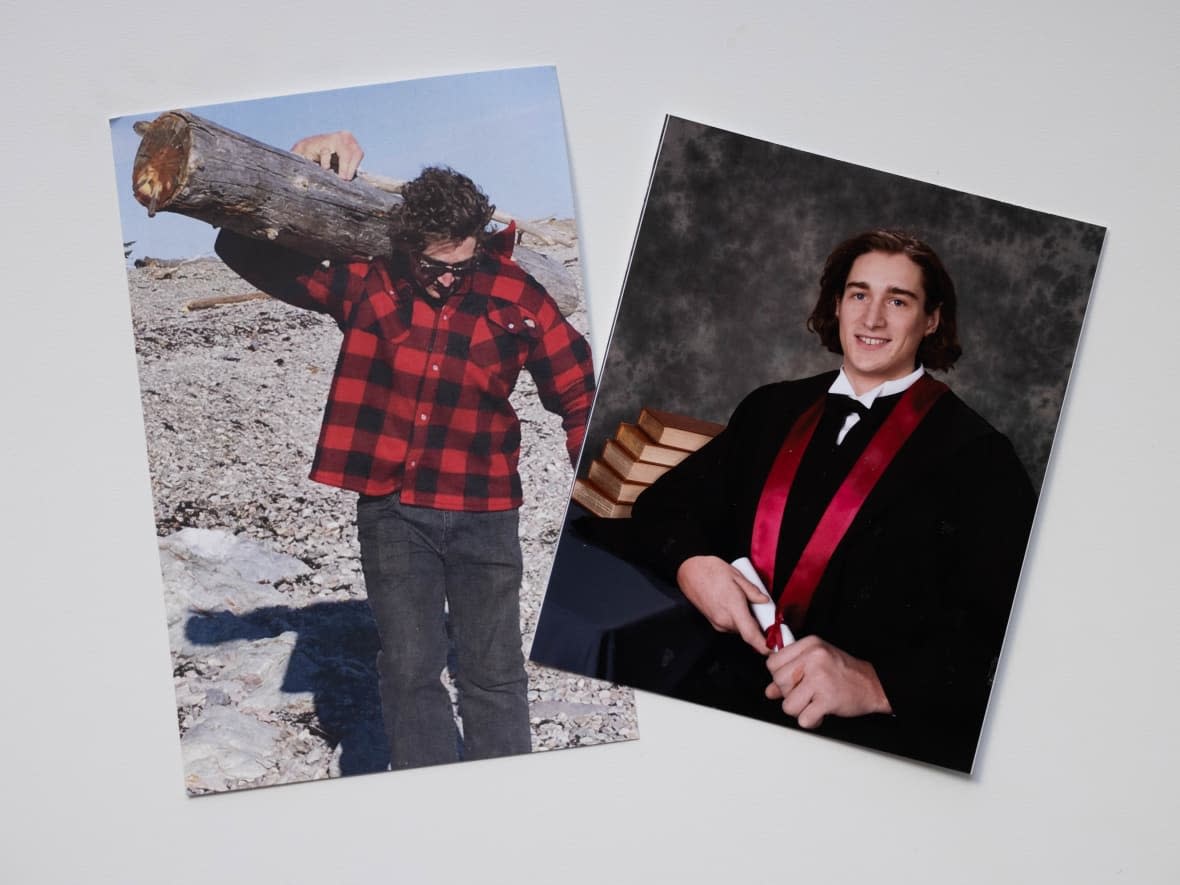Family to sue N.S. government alleging negligence in engineer's drowning

Nicole Gnazdowsky spent the days leading up to the anniversary of her younger brother's death poring over legal paperwork.
Andrew Gnazdowsky drowned on Oct. 16, 2020, while trying to retrieve a piece of floating surveying equipment that had malfunctioned in a reservoir at Nova Scotia Power's hydroelectric system in Sheet Harbour.
On Friday, nearly a year to that day, Nicole Gnazdowsky served notice of a civil claim on behalf of her parents alleging negligence in relation to the 26-year-old man's death.
"This is the only option we have at this point in time to ensure, or try to ensure, some accountability here and some change in the future," Gnazdowsky told CBC News.
The notice is a precursor to a lawsuit and names Nova Scotia's attorney general, as well as the provincial departments of labour and justice as defendants.
It states the defendants "failed to properly investigate the circumstances surrounding the incident and the events that led to the incident and the death of Andrew Gnazdowsky."
It goes on to allege that his autopsy was performed in a negligent manner, and that the province "chose not to follow the established procedures and policies in place to ensure compliance with dam safety protocols and standards."

None of the allegations contained in the notice has been proven in court.
Nicole Gnazdowsky first spoke out about the quality and scope of the Department of Labour's investigation in May, after which the province limited contact to monthly emails confirming its probe was ongoing.
Through freedom of information legislation, she also learned a senior official overseeing workplace investigations called her "hostile" and made reference to deleting notes after a meeting about her brother's case.
Earlier this month, the Department of Justice told the family the province would not be in touch until the investigation was finished, noting that Gnazdowsky had indicated she was dissatisfied with the correspondence.
Ongoing investigation
In an emailed statement to CBC News, the Department of Labour said it continues to investigate and can't comment on an active investigation.
"We need to be thorough in our pursuit to find out why a workplace fatality occurred," wrote spokesperson Monica Maclean.
"We understand the family wants answers, and we want answers, too."
Under provincial legislation, criminal charges can be laid for up to two years after a workplace incident.

Though she still hopes that happens, Gnazdowsky said she has no confidence in the investigation and the people leading it.
"I have only ever wanted [the province] to do the right thing and to see this process through appropriately and with integrity in a way that would be preventative in the future. I haven't seen that," she said.
Not filing lawsuit against 3 companies
Gnazdowsky said she and her parents decided not to proceed with a lawsuit they'd contemplated against the three companies involved: Nova Scotia Power, the site owner; Gemtec, a geotechnical engineering company hired by the utility; and Brunswick Engineering and Consulting of Saint John, a subcontractor and Andrew Gnazdowsky's direct employer.
This was, in part, because his estate received a settlement through WorkSafeNB, said Nicole Gnazdowsky.
The legal recourse in workplace injuries and fatalities is different from other types of civil suits because of workers' compensation legislation, said Liam McHugh-Russell, an assistant professor at Dalhousie University's Schulich School of Law in Halifax.
"Individual employees, and/or their families, basically have their right to sue taken away," he said. "The quid pro quo for having that right taken away is that there is this insurance payout."
McHugh-Russell, who teaches labour law, said generally "civil suits against the government for rules that they've chosen to implement policy are hard to win."
"It's challenging to prove the government's rules aren't adequate," he said. However, the court can force parties to a lawsuit to disclose information.
"The civil process can be a useful way to get answers to unanswered questions."

Gnazdowsky said she knows the legal route may be difficult, but her family still wants to challenge the system they allege failed to protect her brother.
She wears an engineering ring in honour of the one her brother was wearing when he died.
"I just know that his intention as an engineer … was to build a better world. And so I think that's the one thing I hold close to me," she said.
"This is my last opportunity to stand up for my little brother."
MORE TOP STORIES

 Yahoo Movies
Yahoo Movies 
